Themed collection 15 Years of Green Chemistry

15 years of Green Chemistry
At the end of 2013 Green Chemistry completed 15 years of publication. To mark this significant milestone Chairs of the Editorial Board and Scientific Editors were invited for their views on the area of green chemistry, and the changes they have seen since the Journal was launched in 1999.
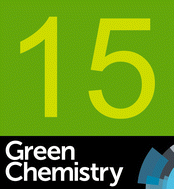
Green Chem., 2014,16, 18-23
https://doi.org/10.1039/C3GC90047A
Forum
Journey on greener pathways: from the use of alternate energy inputs and benign reaction media to sustainable applications of nano-catalysts in synthesis and environmental remediation
Research activity during the last decade is summarized, which describes greener and sustainable endeavours pertaining to organic synthesis and nanomaterials.
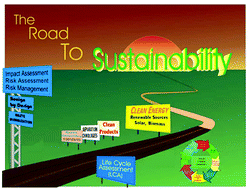
Green Chem., 2014,16, 2027-2041
https://doi.org/10.1039/C3GC42640H
Pharmaceutical Green Chemistry process changes – how long does it take to obtain regulatory approval?
This perspective, gives for the first time, data on the regulatory approval times for Pharmaceutical Green Chemistry process improvements.
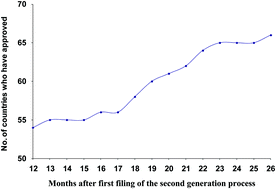
Green Chem., 2013,15, 3099-3104
https://doi.org/10.1039/C3GC41376D
Food waste biomass: a resource for high-value chemicals
The many food processes used in the food and drink industry globally generate food supply chain waste on a multi-tonne scale every year. Such resides include wheat straw surpluses, spent coffee grounds and citrus peels, all of which represent a resource for an integrated, product-focused biorefinery. Orange peel is particularly interesting, producing pectin and D-limonene using low-temperature microwave treatment and the running costs for a large scale have been estimated.
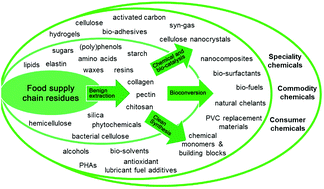
Green Chem., 2013,15, 307-314
https://doi.org/10.1039/C2GC36978H
Continuous process technology: a tool for sustainable production
Reviewing the open literature, the authors give their perspective on if continuous process technology has a role to play in sustainable production within the chemical industry.

Green Chem., 2014,16, 55-62
https://doi.org/10.1039/C3GC41797B
Conversion of glucose and cellulose into value-added products in water and ionic liquids
This review discusses the recent progress in the conversion of glucose and cellulose in water or ionic liquids.
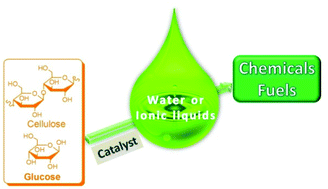
Green Chem., 2013,15, 2619-2635
https://doi.org/10.1039/C3GC41141A
Are ionic liquids a proper solution to current environmental challenges?
In this review, we describe some fundamental studies showing the efficacy of ILs to dissolve organic, inorganic and polymeric materials and we discuss, in the light of eventual future large scale applications, the potential of these media for a more efficient use of renewable resources or waste materials.

Green Chem., 2014,16, 2375-2385
https://doi.org/10.1039/C3GC42096E
Mixing ionic liquids – “simple mixtures” or “double salts”?
This critical review uses the available literature to question whether the same thinking used for organic solvent mixtures should be applied to the liquids obtained by the mixing of ionic liquids.
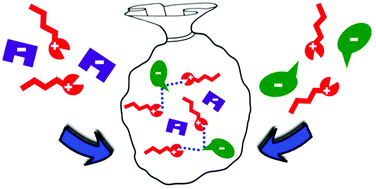
Green Chem., 2014,16, 2051-2083
https://doi.org/10.1039/C3GC41389F
Towards resource efficient chemistry: tandem reactions with renewables
The present review covers resource efficient approaches to application oriented chemicals by transforming renewable resources in tandem reactions.

Green Chem., 2014,16, 982-1006
https://doi.org/10.1039/C3GC41960F
Green and sustainable manufacture of chemicals from biomass: state of the art
Recent advances and strategies for the green and sustainable valorization of waste biomass to commodity chemicals are critically reviewed.
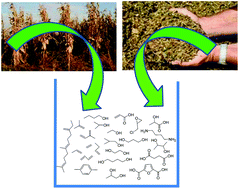
Green Chem., 2014,16, 950-963
https://doi.org/10.1039/C3GC41935E
Conversion of biomass platform molecules into fuel additives and liquid hydrocarbon fuels
Different routes for the conversion of biomass derived platform molecules into fuel additives and liquid hydrocarbon fuels are discussed.
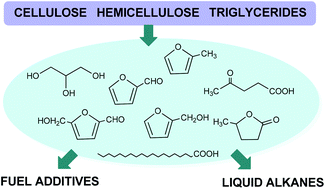
Green Chem., 2014,16, 516-547
https://doi.org/10.1039/C3GC41492B
About this collection
In January 1999 the first issue of Green Chemistry was published with an Editorial written by James Clark, setting out his vision for the Journal. To mark the occasion of the Journal completing fifteen years of publication we invited contributions from authors who have had highly cited articles from each of the past 15 years. The result is this growing web collection covering topics of current importance in green chemistry from those who have contributed to developing the field. Details of the contributors and the years they represent are below. The collection will be added to throughout 2014 and further details on the highly cited articles from each of the last 15 years can be found on the Green Chemistry Blog.
1999 – Rajender Varma
2000 – James Clark
2001 – Robin Rogers
2005 – Roger Sheldon
2006 – Cinzia Chiappe
2007 – Pete Dunn
2008 – Arno Behr
2009 – Buxing Han
2011 – Avelino Corma
2012 – Charlotte Wiles and Paul Watts